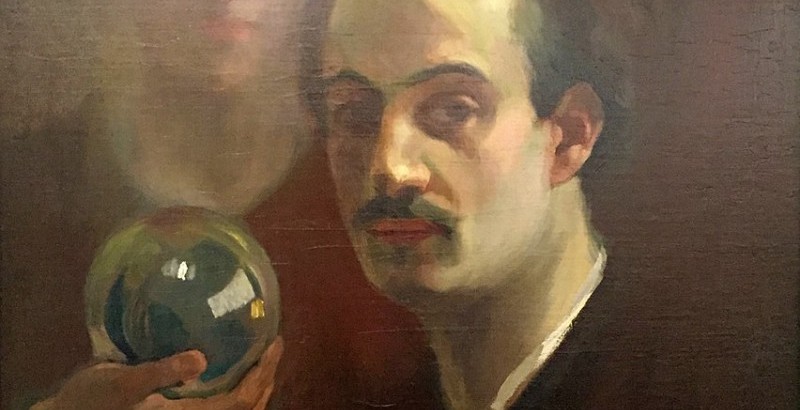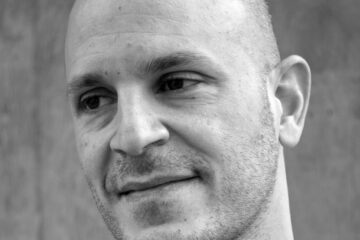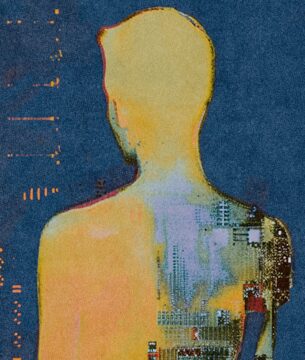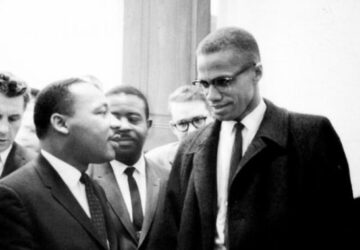Erica Goode in Undark:
 AUTHORS DON’T GET to choose what’s going on in the world when their books are published. More than a few luckless writers ended up with a publication date of Sept. 11, 2001, or perhaps Nov. 8, 2016, the day Donald Trump was elected. But Charan Ranganath, the author of “Why We Remember: Unlocking Memory’s Power to Hold on to What Matters,”was more fortunate. His book went on sale last month, not long after the Department of Justice released a report describing President Joe Biden as an “elderly man with a poor memory” who, in interviews, was “struggling to remember events,” including the year that his son Beau died.
AUTHORS DON’T GET to choose what’s going on in the world when their books are published. More than a few luckless writers ended up with a publication date of Sept. 11, 2001, or perhaps Nov. 8, 2016, the day Donald Trump was elected. But Charan Ranganath, the author of “Why We Remember: Unlocking Memory’s Power to Hold on to What Matters,”was more fortunate. His book went on sale last month, not long after the Department of Justice released a report describing President Joe Biden as an “elderly man with a poor memory” who, in interviews, was “struggling to remember events,” including the year that his son Beau died.
The special counsel’s report immediately became a topic of intense discussion — disputed by the White House, seized on by many Republicans, analyzed by media commentators, and satirized by late-night television hosts. But for Ranganath, a psychologist and neuroscientist at the University of California, Davis, who for decades has been studying the workings of memory, the report’s release was a stroke of luck. His book, which dispels many widespread but wrongheaded assumptions about memory — including some to which that special counsel Robert K. Hur appears to subscribe — could easily have been written as a corrective response.
If Ranganath has a central message, it is that we are far too concerned about forgetting.
More here.

 What made
What made  Cousin marriage rates are high in many countries today. We provide the first estimate of the effect of such marriages on the life expectancy of offspring. By studying couples married over a century ago, we observe their offspring across the lifespan. Using US genealogical data to identify children whose parents were first cousins, we compare their years of life to the offspring of their parents’ siblings. We find that marrying a cousin leads to more than a three-year reduction in offspring life expectancy. This effect is strikingly stable across time, despite large changes in life expectancy and economic environment.
Cousin marriage rates are high in many countries today. We provide the first estimate of the effect of such marriages on the life expectancy of offspring. By studying couples married over a century ago, we observe their offspring across the lifespan. Using US genealogical data to identify children whose parents were first cousins, we compare their years of life to the offspring of their parents’ siblings. We find that marrying a cousin leads to more than a three-year reduction in offspring life expectancy. This effect is strikingly stable across time, despite large changes in life expectancy and economic environment. In 2007 Louise Glück selected Fady Joudah as the winner of the distinguished Yale Series of Younger Poets competition. In a foreword to his debut poetry collection published the following year, The Earth in the Attic, she called Joudah a “lyric poet in whom circumstance and profession . . . have compelled obsession with large social contexts and grave national dilemmas.” Since then, Joudah has published five more collections of poetry, won numerous awards, and translated several volumes of poetry by Palestinian writers, among them Mahmoud Darwish, perhaps the best-known Palestinian poet in the English-speaking world.
In 2007 Louise Glück selected Fady Joudah as the winner of the distinguished Yale Series of Younger Poets competition. In a foreword to his debut poetry collection published the following year, The Earth in the Attic, she called Joudah a “lyric poet in whom circumstance and profession . . . have compelled obsession with large social contexts and grave national dilemmas.” Since then, Joudah has published five more collections of poetry, won numerous awards, and translated several volumes of poetry by Palestinian writers, among them Mahmoud Darwish, perhaps the best-known Palestinian poet in the English-speaking world. “Where’s my tail?”
“Where’s my tail?” T
T It’s true that Caravaggio’s reputation as a revolutionary force in Italian art remains unmatched, but Artemisia Gentileschi now overshadows all the other artists who drew on his influence. Édouard Manet, likewise, may still be seen as the key figure in the emergence of modernism in 19th-century Paris, but among those who recognized and built on his achievement, Mary Cassatt and Berthe Morisot appear far more important today than they did 50 years ago; the specific qualities of their work, unshared by their contemporaries, have come into focus. Paula Modersohn-Becker outshines most of her German Expressionist colleagues. And while Jackson Pollock remains the Abstract Expressionist par excellence, Lee Krasner and Joan Mitchell are now better appreciated than some of the male painters who were once accounted as his near-equals—Franz Kline, for example. Is just plain old “great” not great enough without the “supremely” added like a cherry on top?
It’s true that Caravaggio’s reputation as a revolutionary force in Italian art remains unmatched, but Artemisia Gentileschi now overshadows all the other artists who drew on his influence. Édouard Manet, likewise, may still be seen as the key figure in the emergence of modernism in 19th-century Paris, but among those who recognized and built on his achievement, Mary Cassatt and Berthe Morisot appear far more important today than they did 50 years ago; the specific qualities of their work, unshared by their contemporaries, have come into focus. Paula Modersohn-Becker outshines most of her German Expressionist colleagues. And while Jackson Pollock remains the Abstract Expressionist par excellence, Lee Krasner and Joan Mitchell are now better appreciated than some of the male painters who were once accounted as his near-equals—Franz Kline, for example. Is just plain old “great” not great enough without the “supremely” added like a cherry on top? When my kids were little, I was always afraid that they would die, but that was mostly nervous ignorance on my part, knowing nothing about the resilience of little bodies. I used to worry how an infant would be able to tell me what was wrong. But the real worry was about my parents. They had language—and still they would die.
When my kids were little, I was always afraid that they would die, but that was mostly nervous ignorance on my part, knowing nothing about the resilience of little bodies. I used to worry how an infant would be able to tell me what was wrong. But the real worry was about my parents. They had language—and still they would die. In a recent interview with U.K. Prime Minister Rishi Sunak, Elon Musk
In a recent interview with U.K. Prime Minister Rishi Sunak, Elon Musk  Very few of us expected liberalism to have such a rocky
Very few of us expected liberalism to have such a rocky  When most people think of the civil rights movement, they think of Martin Luther King, Jr., whose “I Have a Dream” speech, delivered on the steps of the Lincoln Memorial in 1963, and his acceptance of the Peace Prize the following year, secured his place as the voice of non-violent, mass protest in the 1960s. Yet the movement achieved its greatest results—the 1964 Civil Rights Act and the 1965 Voting Rights Act—due to the competing and sometimes radical strategies and agendas of diverse individuals such as Malcolm X, whose birthday is celebrated on May 19. As one of the most powerful, controversial, and enigmatic figures of the movement he occupies a necessary place in social studies/history curricula.
When most people think of the civil rights movement, they think of Martin Luther King, Jr., whose “I Have a Dream” speech, delivered on the steps of the Lincoln Memorial in 1963, and his acceptance of the Peace Prize the following year, secured his place as the voice of non-violent, mass protest in the 1960s. Yet the movement achieved its greatest results—the 1964 Civil Rights Act and the 1965 Voting Rights Act—due to the competing and sometimes radical strategies and agendas of diverse individuals such as Malcolm X, whose birthday is celebrated on May 19. As one of the most powerful, controversial, and enigmatic figures of the movement he occupies a necessary place in social studies/history curricula. Although the Cather nuts among us are puzzled that she is not taught, and therefore read, as much as, say, Hemingway or Fitzgerald, Cather has actually had plenty of biographical and scholarly attention since her death in 1947. Within six years, her lifelong companion and literary executrix Edith Lewis had brought out Willa Cather Living: A Personal Record (Knopf, 1953), and her friend Elizabeth Sergeant produced Willa Cather: A Memoir (Lippincott, 1953). That same year, Knopf published E. K. Brown’s Willa Cather: A Critical Biography, a work authorized by Lewis and finished by Leon Edel when Professor Brown died young and in harness. In 1970, James Woodress contributed Willa Cather: Her Life and Art, a wonderful if briefish study, to something called the Pegasus American Authors series. In 1986 Oxford University Press published Sharon O’Brien’s Willa Cather: The Emerging Voice, and the 1980s also saw both a full-length biography from Woodress from the University of Nebraska Press and a definitive full treatment from the British critic and literary biographer Hermione Lee (Willa Cather: Double Lives) from Pantheon. Cather has also in recent decades been the subject of considerations at various lengths by Joan Acocella, Vivian Gornick, Toni Morrison, Katherine Anne Porter, Phyllis Rose, and Eudora Welty, among others. Clearly, she has always been a writer’s writer.
Although the Cather nuts among us are puzzled that she is not taught, and therefore read, as much as, say, Hemingway or Fitzgerald, Cather has actually had plenty of biographical and scholarly attention since her death in 1947. Within six years, her lifelong companion and literary executrix Edith Lewis had brought out Willa Cather Living: A Personal Record (Knopf, 1953), and her friend Elizabeth Sergeant produced Willa Cather: A Memoir (Lippincott, 1953). That same year, Knopf published E. K. Brown’s Willa Cather: A Critical Biography, a work authorized by Lewis and finished by Leon Edel when Professor Brown died young and in harness. In 1970, James Woodress contributed Willa Cather: Her Life and Art, a wonderful if briefish study, to something called the Pegasus American Authors series. In 1986 Oxford University Press published Sharon O’Brien’s Willa Cather: The Emerging Voice, and the 1980s also saw both a full-length biography from Woodress from the University of Nebraska Press and a definitive full treatment from the British critic and literary biographer Hermione Lee (Willa Cather: Double Lives) from Pantheon. Cather has also in recent decades been the subject of considerations at various lengths by Joan Acocella, Vivian Gornick, Toni Morrison, Katherine Anne Porter, Phyllis Rose, and Eudora Welty, among others. Clearly, she has always been a writer’s writer.